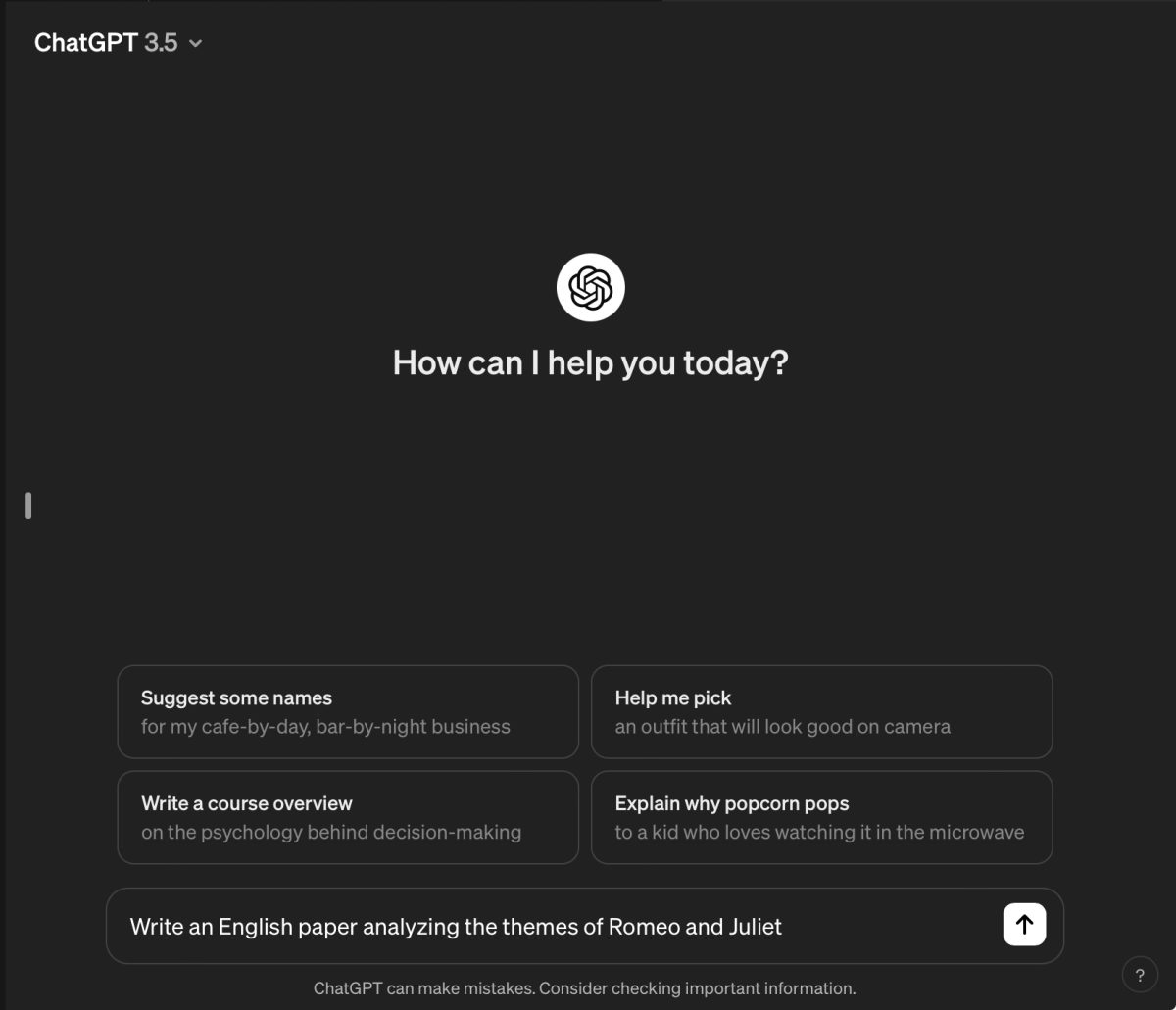English teacher Anna Wiksell first noticed something unusual two weeks into the school year. A student in her sophomore English class, who was not a native English speaker, turned in an essay using language far more sophisticated than anything he had used in class. When she confronted the student, he eventually admitted that the essay had been written by an AI chatbot.
High schools across the country have been grappling with the boom of freely available AI tools, which generate human-like text and images based on user prompts, since the public launch of OpenAI’s ChatGPT in November 2022.
All 19 English teachers at Central said they had read essays submitted by students that they knew or suspected were written by AI, a Register survey of the English department found.
Twelve English teachers reported establishing classroom rules about how students could use AI in their coursework, while six teachers said they either had yet to address AI usage in class or only addressed the issue with individual students.
Five English teachers said that they have instructed students to use AI in their coursework.
Central Librarian Jennifer Kawecki used AI to help students in Ben Justman’s English classes understand the use of figurative language in Shakespeare’s plays. Students searched through the text to find instances of figurative language and then copied and pasted the lines into the AI in the graphic design platform Canva, which generated images based on the excerpts.
“I thought it would give them a deeper understanding of how figurative language works,” Kawecki said. “I wanted [learning Shakespeare] to be more playful as opposed to students just feeling weighted down by it.”
Seven English teachers said they had used AI to lesson plan for their classes, but no teacher reported using the technology to grade coursework.
English teacher Tracey Menten said she used Canva’s AI to generate a presentation for a lesson on logical fallacies. “Instead of taking an hour because I overthink things when I lesson plan, it maybe took me 20 minutes to plan,” Menten said.
Menten said that she has also found ChatGPT to be helpful in writing critical thinking questions but said that when she asked the chatbot to write a multiple-choice test on Macbeth, almost all of the information was inaccurate. “You do have to have working knowledge of whatever you’re having it produce.”
The majority of teachers who responded to The Register’s survey agreed that there are contexts where it is appropriate for students to use AI in their coursework.
Many teachers said that AI could be used as a first step to help students develop their own ideas and writing but stressed that it should not be used as a substitute for student thinking.
Brainstorming, outlining, researching and revising essays were the most common examples of what English teachers considered appropriate uses of AI in students’ coursework.
Five teachers said they believed AI should never be used by students in their coursework.
Wiksell has begun requiring seniors in her AP Literature and Composition classes to include statements of how they used AI in their essays. Students must either attest that they did not use AI or that they did use the technology but did not copy and paste text directly from an AI chatbot. If her students attest to using AI at any stage of essay writing, they are required to detail how they used the technology and include links to the conversation with the chatbot.
English Department Head John Flannagan pushed back against some of the alarmism surrounding the rapid proliferation of AI chatbots. “It’s not really a crisis,” he said. “Twenty years ago, this is what Google and SparkNotes were to teachers. Suddenly, students could just go find all the answers online. This is just kind of the next step.”
Flanagan also touted the English department’s more than century-old tradition of requiring students to write essays by hand in class, which he said makes it difficult for students to use AI.
“I think most of us have a good sense of how our students write,” he said. “So, when you see an outlier, you know there’s a good chance this student didn’t write this essay because you’ve seen other writing samples.”
Flanagan said he discussed AI usage by students with curriculum specialists from other OPS high schools but that no district-wide guidelines have yet been proposed.
He plans to assemble a working group of English teachers who have experimented with AI over the summer to draft guidelines for how the technology should be used in Central’s English classes. He speculated that policies on AI usage may one day be included in Central’s famed Stylebook.
Many English teachers said that, while they hoped for more discussion at Central and throughout OPS about how AI can be used appropriately by students, they were wary of policies that too strictly regulate how teachers and students use the technology.
“[AI] is still developing so rapidly,” Wiksell said. “We don’t know how best to use it in instruction yet. So, I’m hesitant to ask for a big general policy when we have such a diverse population of students and staff who need to use it.”
“We need to trust in teacher discretion,” Menten said. “Because we are professionals, after all.”














